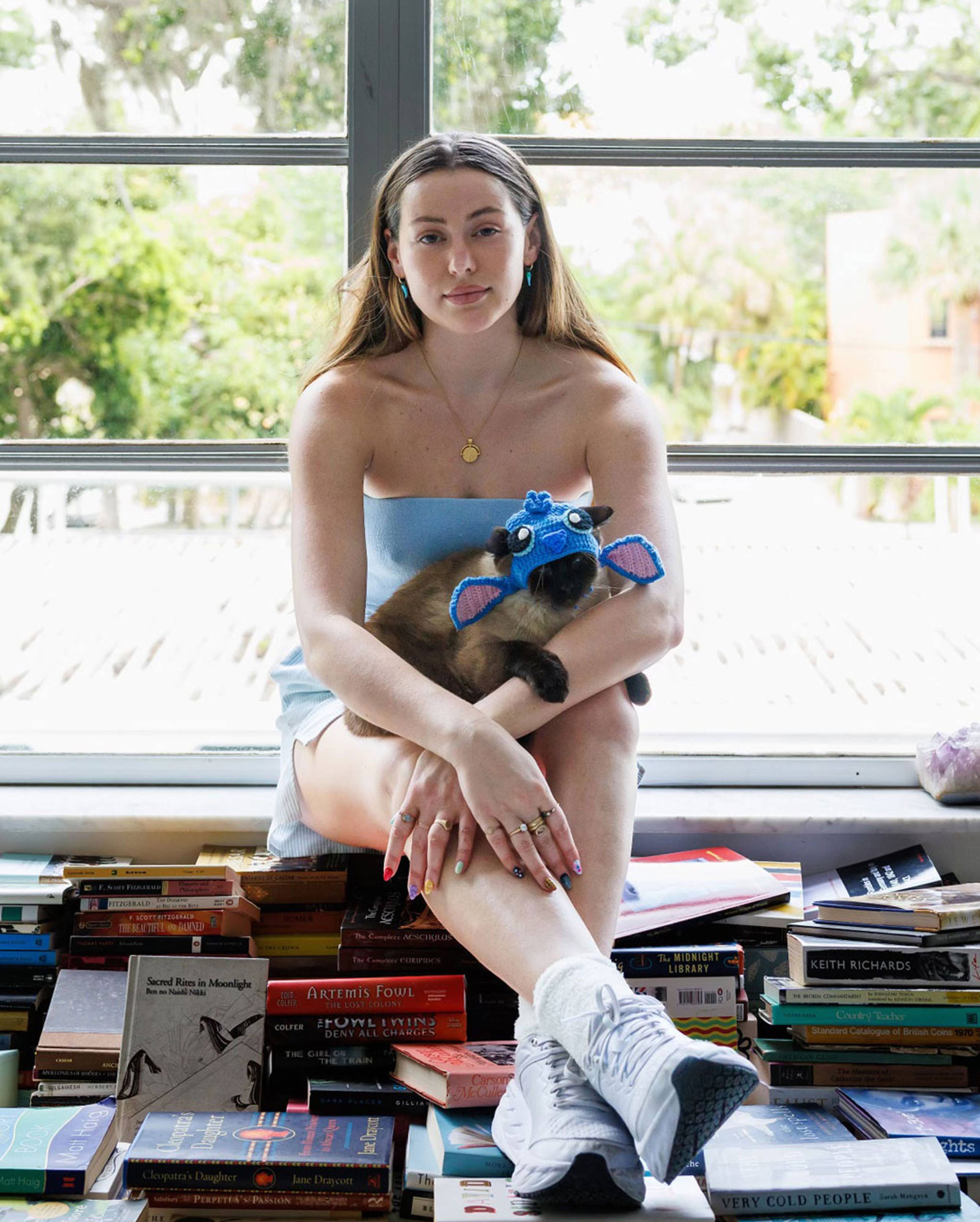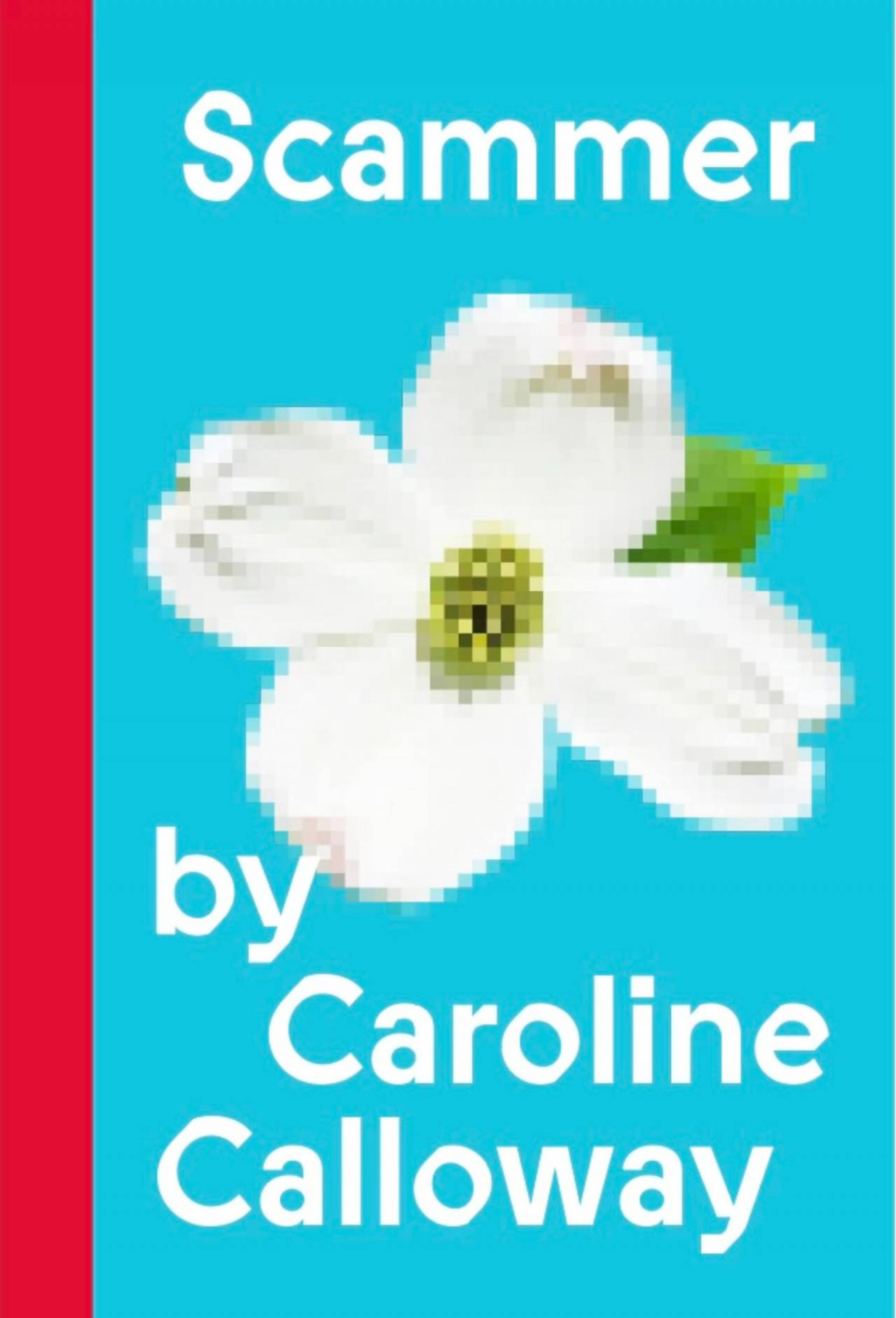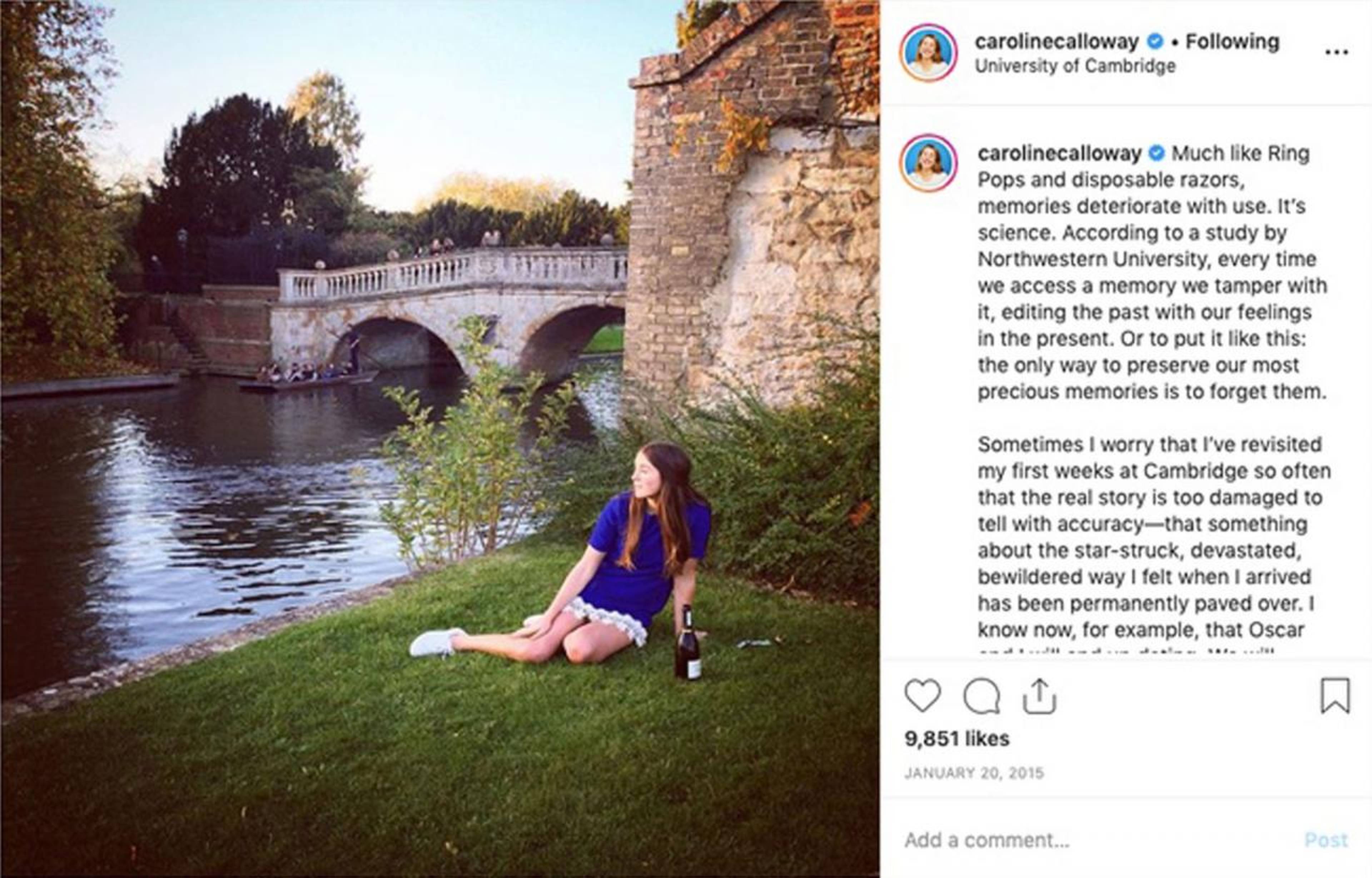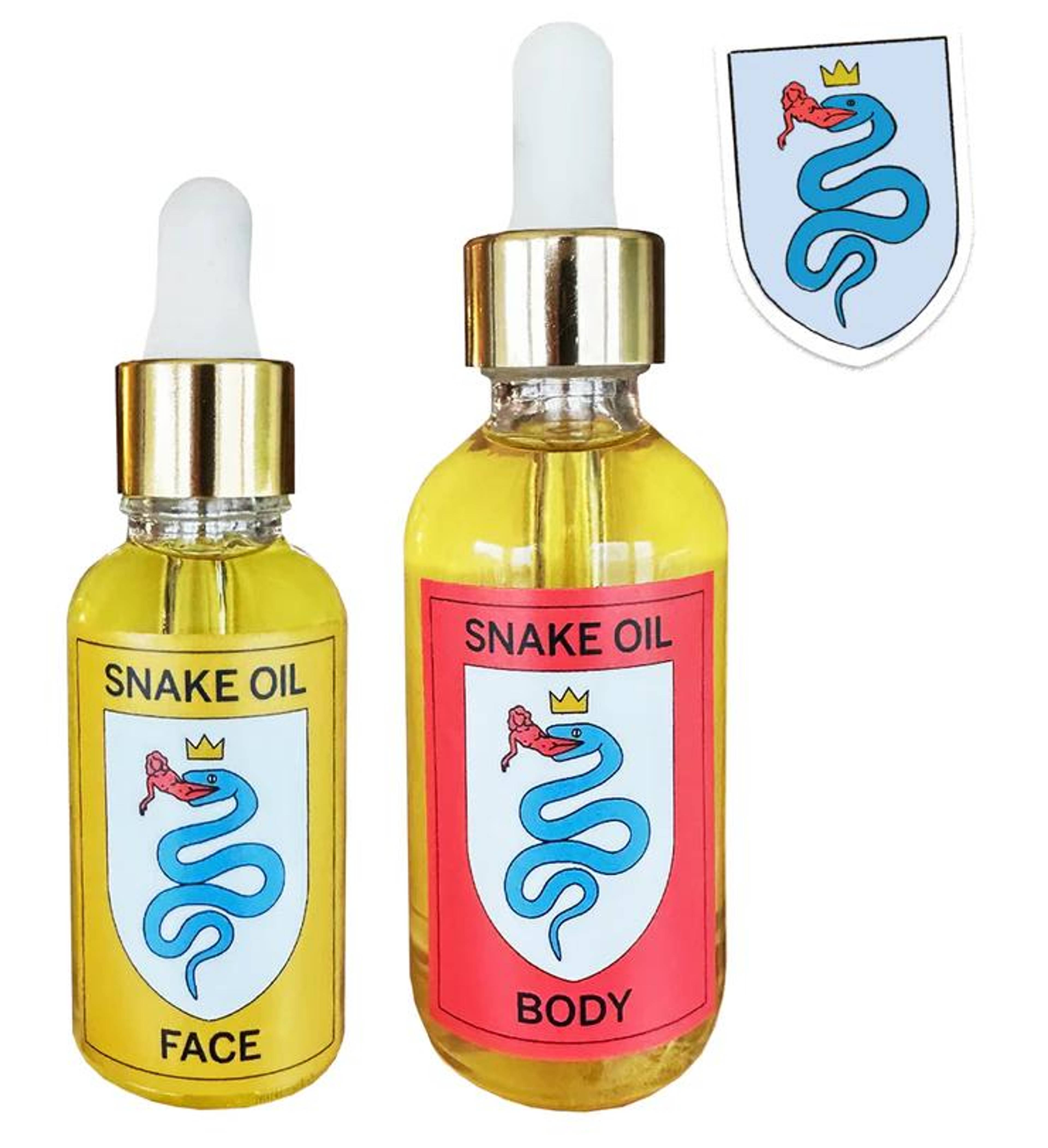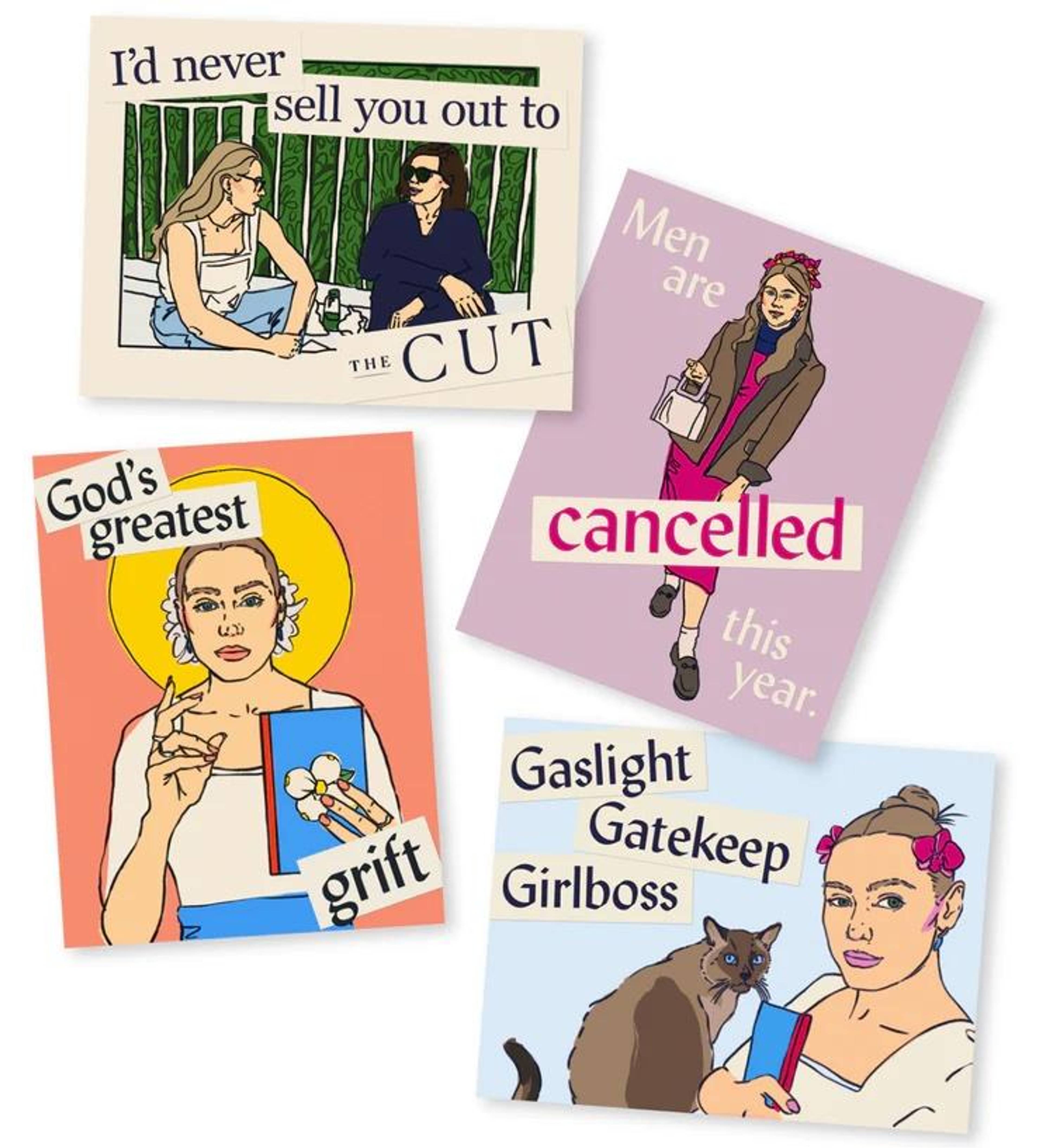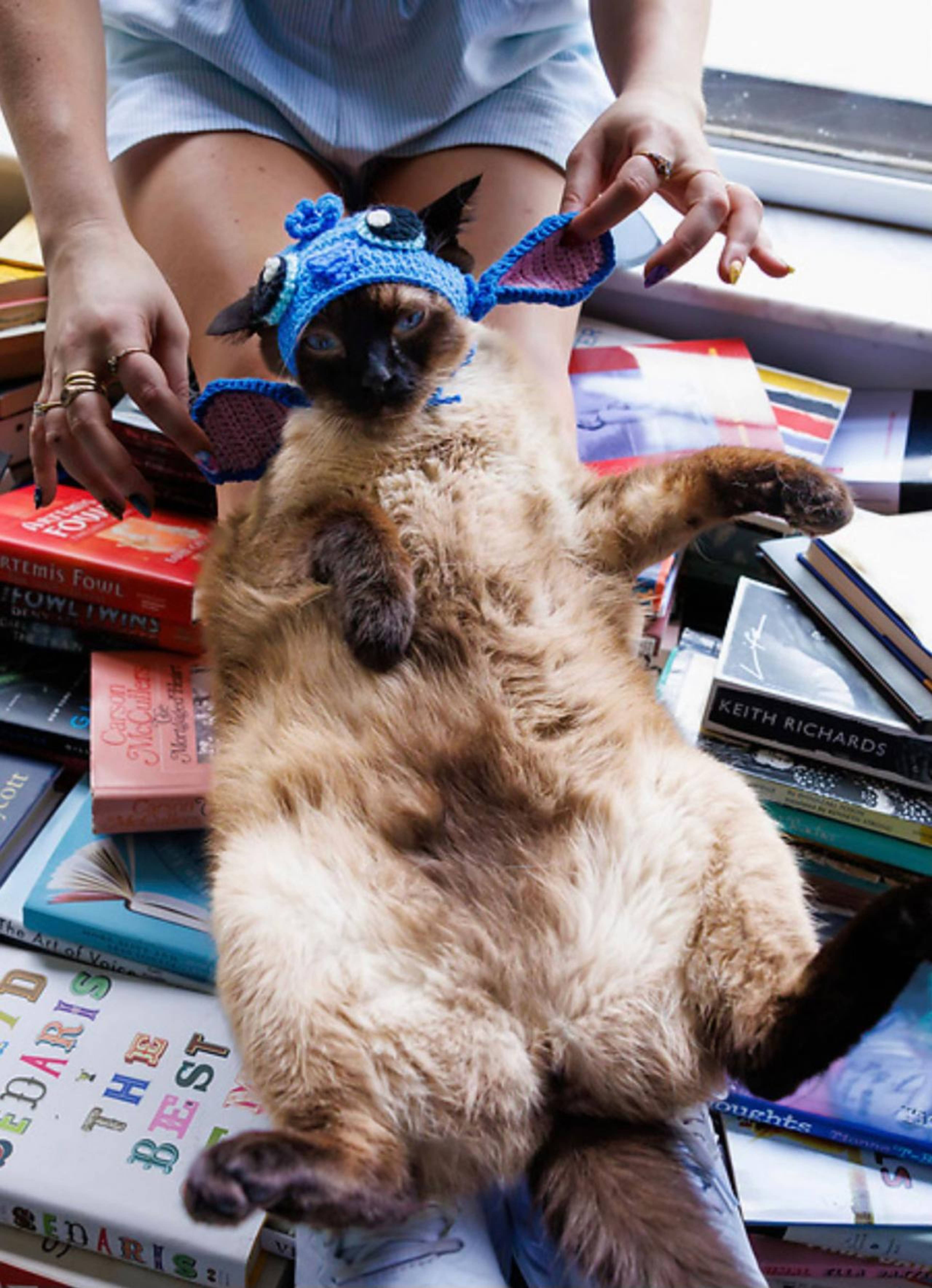Before there was Emily in Paris, there was Caroline Calloway – an American girl abroad beloved by a generation of early Instagrammers for charmed snapshots and diaristic captions narrating her time in a faraway land. As an undergraduate at Cambridge, Calloway was something of a proto “That Girl,” at least online – she was like a champagne-drenched Hermione Granger, with significantly smoother hair. That is, until her former best friend and collaborator, Natalie Beach, accused Calloway of fraud (including purchasing 40k fake followers, which, at the time, cost $4.99) and plagiarism in an essay for New York Magazine’s The Cut.
Snapping back with a level of savvy that can’t be bought, Calloway embraced the labels – liar, grifter, scammer – that came to characterize her public perception, metabolizing them into the next chapter of her career. Since then, she’s been a lightning rod for love-to-haters, a fixture in the pandemic-era Dimes Square party scene, the impresario of some ill-planned “creativity workshops,” and the peddler of a skincare line called Snake Oil. Her first memoir, Scammer, has been forthcoming since 2020, and was finally self-published this June. As of this writing, it boasts a 1.5-star rating on Goodreads, mainly reviewed by irate would-be readers who prepaid for copies three years ago and have yet to receive them. I Zoomed with Calloway, her apartment floor piled with mailing supplies as she tries to remediate that problem.
Front cover of Scammer, 2023
Adina Glickstein: In short: What makes you a scammer? What are the allegations against you?
Caroline Calloway: The allegations don’t look good, and some of them are even completely true. I’ll start with the true allegations. In college, I sold a book for half a million dollars that I had no intention of ever writing. And for that, my publisher gave me one hundred thousand dollars upfront, which is the industry standard for a book advance. It took me many years to earn back the money and get out of debt.
The scandals that followed are largely untrue, and all happened during the time when I still owed my publishers. My ex-best friend wrote a scathing tell-all about me, where she erased my Adderall addiction from the record, and made all the cruel, maniacal, unhinged shit I ever did on drugs seem like my baseline personality, if not the core of who I am. Perhaps most importantly, she very effectively positioned herself as the brain behind my brand – the mastermind who had made me famous and who had, crucially, written all of my Instagram captions about Cambridge. That was a big part of my online brand and what had earned me the book deal. She sold that tell-all to The Cut, in what became my first big viral scammer moment.
But that was preceded by a mini viral scammer moment, which enabled her to pitch something like that in the first place. In early 2019, while I was trying to pay back to my publishers, I put together what I called “creativity workshops.” I never thought of myself as having anything particularly important to teach. But “let’s have white wine and sit on the floor and do crafts, and I’ll talk to you for six hours and tell stories that I don’t want to put on the Internet” just didn’t have the same ring to it. These workshops, like everything I’ve ever done, were chaotic and ill-researched. But everyone for whom the event was designed was aware that chaos is the brand.
Despite this, a Reddit user in Scotland put together a Twitter thread where she took screenshots of my Instagram stories, where I had promised certain things for the workshops, and compared them side-by-side with details from the actual events. But of course, Instagram stories self-delete, so all of the posts I had made along the way, explaining how the events were changing and what they were shaping up to be, were left out. So, this Twitter thread, accusing me of grifting by selling tickets to fake “creativity workshops,” made a very compelling – if, obviously, selective – case that I was a scammer. And, God, who wouldn’t want to click on an article about an influencer who is described as “a one-woman Fyre Festival”?
@carolinecalloway 20 January 2015
AG: Before you became known as a scammer, what was your online persona like?
CC: I’ve been online for ten years, and for five of those years, I was a fairy tale. I always knew that I wanted to be a famous memoirist. And in the early days of Instagram, I saw social media as a really powerful and fascinating new way that you could build a brand, separate from more traditional routes toward fame. This was before “influencer marketing” even existed. I tried to build up a following on Instagram by writing stories. Confessional, diaristic, aspirational stories about my time as an American student at the University of Cambridge. I was very much playing up the trope of every Julia Roberts/Hugh Grant rom-com where American Girl meets Bumbling Oxfordian Gentleman.
At that point – this was 2014, 2015 – I was really pushing the envelope in terms of what Instagram could be. I was at the razor’s edge of online vulnerability. It was seen, at that time, as nothing short of batshit, sick-in-the-head energy to post novelistic, three-paragraph captions divulging personal details about one’s life. I mean, a normal Instagram post in 2014 was an aerial shot of avocado toast with the caption “#valencia.” Of course, that whole time, I was constantly lying by omission. I was dealing, behind the scenes, with a debilitating Adderall addiction, and I only had the courage in me to be so brave online... I could talk about missing my ex, but I wasn’t willing to talk about growing up in a hoarder’s house, or my dad’s suicidal depression – or my own, for that matter – or my pills.
If I were a man and I said that I wanted as many people as possible to read my books, wouldn’t that be something sooo noble for me to aspire to?
AG: Right, of course, selectively sharing is part of the formula. I think it’s fair to say that you were well ahead of the curve in anticipating the ways in which Instagram would eventually be used, and the extent to which people could publicly perform and monetize a certain kind of persona. You touch on this in Scammer , encapsulating it really brilliantly via the idea of “the It Girl as a startup.” So, can you give me the elevator pitch for Caroline Calloway, The Business?
CC: My first instinct is that it can’t be done. But I realize that’s because my standard mental image of an “elevator pitch” involves talking to a venture capital investor who is an old white guy. I don’t think I’m capable of convincing him that he should back me, and I don’t think it’s even worth my time trying. How do you explain to him how the tectonic plates of celebrity are shifting before our very feet?
AG: Pretend it’s me. I’m the hypothetical VC. I’m cool!
CC: Okay. You’re a woman, you’re around my age. I would say to you that, for so long, women have not been able to monetize their own faces, names, or personal brands. Everything from old Hollywood actresses to opera singers in centuries past, even back to ancient Greco-Roman times. Women can be public figures, but we don’t usually get to see much of the upside. With the advent of social media, this can change. When a young woman says she wants to be a famous anything, I think our immediate reaction, thanks to internalized misogyny, is to devalue her – to think of her as shallow or conniving or not wanting the right things in life. But if I were a man, and I said that I wanted as many people as possible to read my books, wouldn’t that be something sooo noble for me to aspire to?
Caroline Calloway’s “Snake Oil” skincare products
AG: Definitely… but digging into that answer some more: Do you personally feel like, being a public presence on social media, you have meaningful agency over the way you’re perceived? Or do you feel like your reception is up to forces beyond your control?
CC: I definitely think it’s a combination of both. But a less talented self-publicist would not have been able to steer the ship of their brand through the choppy fucking seas that I have over the past five years. So, I do feel good about saying that a lot of it was skill. Taylor Swift has that great line: Tell me why so many others fade, but I’m still here. Like, okay, you might think I’m a grifter. The fact of the matter is, you still care. And I think it takes skill to be able to maintain that attention and narrative control, especially when you have a lot of things stacked against you, as I have.
I mean, my dad’s dead body was found two days after my friend’s scathing tell-all was published in The Cut. Like, come on. That’s a rough hand to be dealt. And just like at any other job where you go into the office, you’re not going to be doing your best work or making your best decisions when you’re going through that kind of white-hot trauma – not just the global public shaming that followed the publication of Natalie’s piece, but the personal grief as well.
I do feel like, you know, I would have been able to do my job better if I had just been dealing with the viral story and the public shaming. Likewise, I could have written Scammer faster if I hadn’t had so much to heal from. But I do think I’ve handled a lot of the unlucky things that have happened to me. Some of those things are out of my control entirely. But in terms of the things that I can control, I never think, “oh, I could have done better.” I kept my head above water through a period that would have drowned other personal brands that weren’t as well-managed as mine.
it’s not just that people don’t see my skill, BUT that they identify IT as a sickness. As in, I’m just a malignant narcissist who does things for attention – Living off of clicks at any cost.
AG: Right, I’ve always hated it when people say, disparagingly, that celebrities are “just famous for being famous.” Fame is a skill set! It’s interesting how the labor of branding is made to be invisible when it’s in service of something personal. And it’s obvious, especially after reading Scammer, that you are extremely skillful in terms of how you run your brand.
CC: There’s a line in the book where I talk about this: I feel like my skill for branding is pathologized. Like, it’s not just that people don’t see my skill, it’s that they identify this skill as a sickness. As in, I’m just a malignant narcissist who does things for attention. Living off of clicks at any cost. But, no! I’ve played my cards to the best of my ability, because my goal, at the end of the day, is to have my books reach as many people as possible. There’s nothing in this whole world I dream of more than the idea of the maximum number of people caring about what I write.
I think there are very few people who love every single part of their job. Every career has its own shit. And this is this is just some of the toxic shit I have to put up with at my particular place of work. There are some real sexists at my job, let me tell you that...
Caroline Calloway’s “Grift Cards”
AG: And when your personal brand is your workplace, there is no clocking out at night, right?
CC: Yeah, I mean, totally. Although, when I’m not posting, I’m not posting. Most influencers make so many videos. I don’t think people really appreciate how little video content of me exists in this world. Like, almost everything I do is static – it’s photographs and words. I’m not really as taxed by that, though I find being on video really draining. I actually really hate being on camera.
AG: Well, I bet the book’s much-awaited release will give you no shortage of photo ops. On that note – congrats again on Scammer, it’s very exciting to see you get a memoir out there. I hope there are some killer parties lined up to celebrate. Which leads me to my last question: Imagine you’re at one of the many inevitable launch parties, huddled in a bathroom stall, doing whatever people at parties do in bathrooms. You can have three people, living or dead, smushed in there alongside you, sharing lines of Calvin Klein or whatever. Who do you pick?
CC: I’ve been waiting my whole life for someone to ask me this. First: Elizabeth Wurtzel. Pre-rehab. If it’s Elizabeth Wurtzel after rehab, I mean after her first stint in rehab – honestly, as soon as she started her journey to recovery – I don’t want to be part of that for her. But pre-rehab, I feel like it would have been fun. So I want early Elizabeth Wurtzel. Then, I want Taylor Swift, just because I want to be as close to Taylor Swift as possible, and I think that being in a bathroom stall, regardless of what we’re doing, would be a great way to accomplish that dream of mine. And for the third person, I’d pick Annie Ernaux. She was the first woman to ever win the Nobel Prize for a body of writing about herself, and that was literally in 2022. I don’t think she’d be very fun to do coke with, though. I’m really just focusing on the bathroom stall element here. Forget the drugs, I just want to be close to these women.
Caroline Calloway’s cat, Matisse. © Casey Brooke
___


